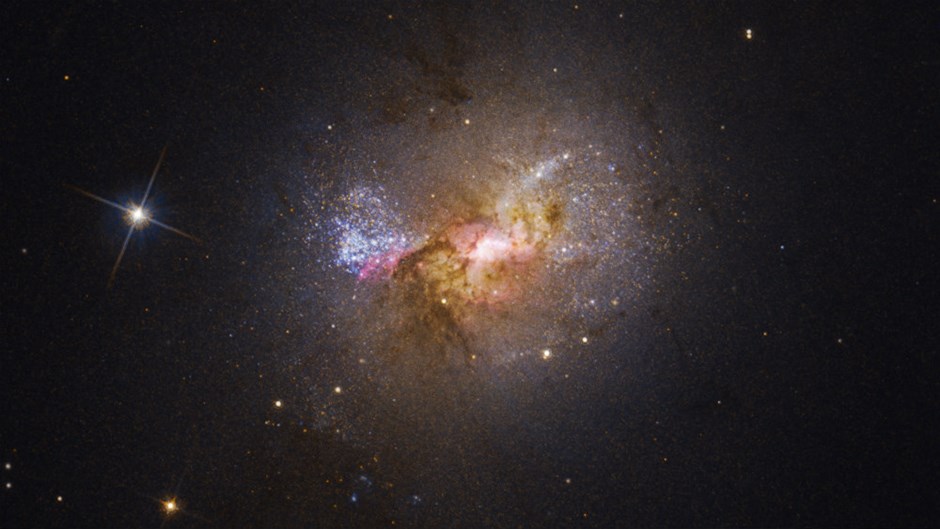Astrophysicist Jeff Zweerink reminds us that the theoretical prediction of black holes and their subsequent discovery highlights the comprehensibility of the universe by human minds–even relating to phenomena far beyond anything in our experience.
In an interview with Christianity Today, titled, “How Black Holes Radiate God’s Glory“, Zweerink addresses physics and profound questions relating to these mysterious and extreme end-states of massive stars.

There has been a burst of research on black holes in recent days. Three scholars from Norway, Brazil, and Canada say they’ve found the “smoking gun for the quantum structure of black hole horizons” in gravitational wave echoes. NASA’s Chandra X-ray Observatory reports evidence black holes are devouring thousands of stars. And two more scholars from the United Kingdom and the United States have proposed that “quantum hair” can resolve the black hole paradox first described by theoretical physicist Stephen Hawking.
According to Reasons to Believe astrophysicist Jeff Zweerink, the new research raises new questions, showing us that “the more we learn, the more we realize how much more there is to learn.” CT asked him why physics isn’t finished and what that can teach Christians who, like the psalmist, “consider your heavens, the work of your fingers” (Ps. 8:3).
What do black holes tell us about God?
It’s not like, “Black holes, therefore God.” But the theory of the universe that we have—the theory that said black holes should exist before anyone knew to even think about them—is predicated on the idea that our universe ought to be understandable. It ought to be coherent. It ought to be the same out in the distant reaches of the universe as it is here.
That points to the Creator. That tells us something about the Creator.
Look at how we get to black holes in the first place. Albert Einstein, back in 1915, recognized that as you move through the universe, from big stuff to small stuff and very fast stuff to very slow stuff, the laws of physics seemed to change. The way electromagnetism behaved was different from the way gravity behaved, and Einstein looked at that and said that doesn’t make sense. The laws of physics ought to be the same no matter how you look at them.
It was that philosophical idea that led him to develop his general theory of relativity. And if general relativity is right, then there should be these things called black holes.
The insight or genius of general relatively is that space and time, instead of being abstractions or kind of empty spaces, are now understood as these dynamic quantities. As energy moves through space and time, it actually warps space and time, and they could become so warped that they would rupture. If you get a star that’s massive enough, the gravitational pull is so strong that it collapses on itself and that’s a black hole. So people started thinking about black holes theoretically and eventually found evidence. We even found that in the center of our galaxy there is this massive black hole.
The connection here is that when we look at creation, we expect to see an orderly, coherent creation. For Einstein, it is a philosophical idea that ultimately derives from the notion that there is a unified order. And that’s what you would expect if there is a God who created it.
Zweerink addresses more questions in the interview and ends with these thoughts:
Every time we solve one of these big questions and put the answer out there, we run into a whole new set of questions that we didn’t know existed! Compare our understanding of the universe now to when Isaac Newton was talking about his theory of gravity. We know so much more about what’s going on than we did back then. But there are also so many more questions that we don’t have answers to.
It’s almost like, the more we learn, the more we realize how much more there is to learn. You can start to see that we will never exhaust this. We’re going to be able to study creation forever. There will be new questions that we haven’t even thought to ask.
And this, again, points to the Creator. That’s where I see a connection to theology. Because that same thing is true about studying God’s revelation and Scripture and God. We’ve got a lot of the big picture in place, but there are also new questions and we will never be done. We will never exhaust the subject. That moves me personally to awe and to want to worship.